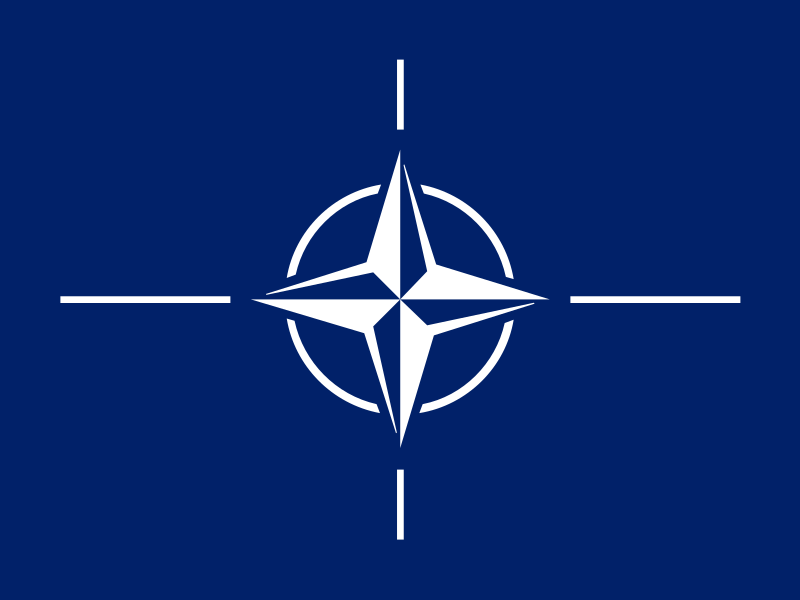This piece may contain slight spoilers for season one of Netflix’s new comedy series “Space Force,” premiered globally online on May 29, 2020.
In 1890, Alfred Thayer Mahan of the U.S Naval War College penned one of the great works on military theory — “The Influence of Sea Power upon History”. His treatise devised a general understanding of national naval strategy by observing the history of repeated maritime interactions between the European fleets in the 17th and 18th centuries. Mahan’s ideas informed thinking on the subject well into the 20th century, and prompted a reevaluation of the American approach towards sea power — in turn establishing the foundations for the United States’ later global hegemonic position, predicated on its mastery of force-projection on the waves.
To those observing the opening of the cosmos today, the parallel opening of the oceans in centuries hence may serve as an inspired point of historical reference. It is no wonder that some scholars see Mahan’s model as a potential starting place for the articulation of a general theory of national space power. Much like the watery depths of an earlier age, the vast unknowns of the cosmic oceans are increasingly becoming a future domain for expressions of human ambition, exploration, exploitation, cooperation… and competition. States have a vested interest in space and the development of their space assets; and where there are national interests, there is a pressing exigency to advance and defend those interests in the face of those who would seek to deliberately stymie them. It is from this recognition that the United States Space Force was officially created as the sixth branch of the U.S Armed Forces in December of 2019.
This new space race of the multiplex age, and the related implications on policy and strategy, provide the background animus to Netflix’s latest flagship effort, Space Force. Globally premiered on May 29, 2020 from the makers of the hit show The Office, the first season of Space Force was skewered by critics, many of whom had eagerly anticipated the return of actor Steve Carrell to a leading role in a mainline television series. Frankly, Space Force is not an adequate successor series for fans of The Office. The new series’ half-hour episodic runtimes lack the comedic efficiency or capacity for societal inspection that define other contemporary satires like Nathan for You or Curb Your Enthusiasm. Space Force tries its hand at a more grounded and technical portrayal of a workspace comedy, though conceptual absurdities abound as devices for plot advancement (“chimpstronauts”, for example, are introduced as early as the second episode).
Rather, this is a show for those career stalwarts who have braved conditions of governmental incompetence and bureaucratic inefficiency alike. Defense industry insiders might most appreciate Space Force’s wider thematization of Trump-era dysfunction, despite its disregard for the particulars of protocol and the military chain-of-command. There are, after all, moments of genuine, spontaneous hilarity, and despite its poor critical reception, Space Force seems to have struck a note amongst viewers across markets. Between the quintessential tunes of “Kokomo” and a jazzy Bobby Womack cover of “Fly Me To The Moon” that grace its superb soundtrack, Space Force manages to give the West’s popular media its first dramatization of the ‘Multiplex Era’, doing so especially through its depiction of evolving strategic norms in the context of extraterrestrial astropolitics.
In a 2010 episode of The Office, co-workers Michael Scott (famously played by Steve Carrell) and Oscar Martinez debate the rise of China as a coming global power. A decade later, in Space Force, there is no such debate — China has risen, and the transition from the structured liberal world order of the past to the chaotic multiplex era of today is complete. As the now-classic maxim goes, “anarchy is what states make of it”; here, space represents its own kind of limitless anarchy, in which the show confirms, “we make the rules”. Similarly, a multiplex world order, as envisaged by author Amitav Acharya, is “decentralized, diversified, and multidimensional,” featuring interactions of state and non-state actors —including multinational corporations, non-governmental organizations, and even terrorist groups — in the making of a pluralist ideation of global governance. In Space Force, a multiplex narrative is conveyed by the intersections of presidential twitter policy, the defense contracting industry, congressional budget hearings, tech moguls in the vein of Elon Musk and political upstarts such as Alexandria Ocasio-Cortez, among other clever parodies.
Unlike the chest-thumping formations of yesteryear, Space Force does not shy away from the complications of modern geopolitics, or astropolitics. Multiple competing national actors in space are depicted, but the greatest threat to American interests may actually be internecine conflict from within. The show admits that the traditional pre-eminence of America’s top military and scientific minds has been surpassed, or at least matched, and that the United States no longer calls all the shots, everywhere. General Naird, the series protagonist and head of the eponymous Space Force, leads a multinational team of astrobotanists, physicists, and space troopers from locales as far as Russia (by POTUS’ request), Japan, India, Belgium, Sri Lanka, and… Canada. An international dustup in space is not merely plausible or theoretical, but actual and inevitable. In this protean environment, which is effectively leaderless in the absence of consistent defense policy, the United States government of Space Force is insecure about itself and its role in the multiplex order. One standout episode depicts an Indian rocket launch that appears to be using stolen American technology, prompting searches within the force for a hidden spy. By the end of the episode, it becomes apparent that there is no covert operative, no easy bogeyman to blame. The United States Space Force was simply bested by a foreign agency. The audience learns to accept that in a multiplex world order, that might just sometimes come to be the case.
Using a sterile official headquarters as the primary setting for its messy comedic enterprises, Space Force manages to subvert the traditional tropes of space-related or military genre media. In doing so, it also raises real questions that will soon accompany the militarization and habitation of space by national bodies, including the delineation of exclusive economic zones in space, or the claiming of territories in the name of “scientific research”. There are the basic articulations of space power theory, including the notion of astro-deterrence, or determining an appropriate retaliatory response in instances of an attack on national space assets or infrastructure. Existing international legislation on space militarization may be unable to adequately keep pace with the shifting paradigms of space technology or national-strategic doctrinal change. Space Force asks complicated questions of the multiplex era: what constitutes jus ad bellum or casus belli in the operational domain of space? Should reprisals for space attacks be limited to space, or retaliated to on earth? Can posturing on earth provoke concessions in space, or vice versa? Do we dare risk New York for the Sea of Tranquility?
Carl von Clausewitz, in that other great text on military practice, wrote that “war is the continuation of policy by other means”. It ought to be recognized that space power exists as a “subcategory of war” and therefore “serves as a means to achieve political goals,” even in its inchoate incarnation. Concepts of space power and the need for more substantive theory are not abstract endeavours — the race to space is already underway. Everyday, more countries are seriously evaluating their national future in space, and early entrants will undoubtedly enjoy a valuable short-to-medium term advantage in dictating the shape of future international space dynamics. Just last year, in a landmark move, NATO adopted its own space policy and “recognised space as a new operational domain, alongside air, land, sea, and cyberspace”. It is widely accepted that a regional space race is emerging in Asia between India, Japan, China, Iran, and Pakistan, for the purposes of boosting both domestic prestige and tactical superiority. A mere two months ago, Russia tested an anti-satellite missile in response to the American Space Force’s recent procurement of its own light-weight jamming systems.
While the idea of a Space Force might seem the offhand product of Trumpian feverdream, enough to even greenlight a television comedy about it, there is nothing humorous about the repercussive stakes of increased military competition in space. In the long historical retrospective, the creation of the United States Space Force as an independent branch of the Armed Forces might well go down as the only policy triumph of this beleaguered administration. Though not yet quite as culturally iconic of its era as a Dr. Strangelove, Space Force possesses the definite potential to come into its own in future seasons. In the process, it might even unknowingly iterate the sentiments expressed by Alfred Mahan regarding sea power in 1890: “whether they will or not, Americans must now begin to look outward”. Space Force’s first season ends on a cliffhanger, raising the spectre of national cooperation and conflict in the multiplex exoplanetary unknowns. Should it be renewed by Netflix for a second season, viewers will be eager for a resolution to those epochal uncertainties, both on the screen — and off it.
Featured Image: Gen. “Jay” Raymond, Air Force Space Command commander, visited Thule Air Base, Greenland Dec. 10-12, 2017 with AFSPC command chief, Chief Master Sgt. Brendan Criswell, Col. Jennifer Grant, 50th Space Wing commander, and Col. Devin Pepper, 21st Operations Group. (2017) by Tech. Sgt. David Salanitri via Flickr. Photo courtesy of United States Air Force Space Command.
Disclaimer: Any views or opinions expressed in articles are solely those of the authors and do not necessarily represent the views of the NATO Association of Canada.




